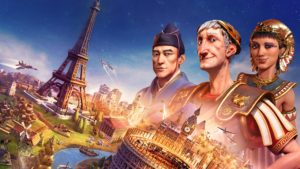The barrier between video games and every other aspect of pop culture, already porous, has collapsed utterly. This is not, to be candid, what my pre-teen self expected to happen, back when I was lavishing untold hours on Super Nintendo classics. Even when these games boasted near-flawless mechanics, as in the case of The Legend of Zelda: A Link to the Past, or the sophisticated narrative of Ogre Battle: The March of the Black Queen, I considered them fairly disreputable diversions. It was generally agreed that they were the sort of mindless entertainments that could only be enjoyed alone in a room by children or adolescents, then kept out of sight.
The early world of internet gaming was a kind of messy bachelor pad, and we button-pushing boy masterminds abounded. Each of us had independently discovered these games, as we might have done with Roger Corman films or post-punk music, and we manspread across this open frontier. A process of acculturation equated console gaming and computer technology with maladjusted “nerds”, meaning that they held scant appeal for women or any other normies. Ensconced in parents’ basements or rat-hole apartments, the most successful gamers could demonstrate mastery alone or against others: crushing foes in one of the various Super Smash Bros fighting games or extending the virtual empire in their grand strategy game to the limits of the known world. In lives otherwise without purpose, in an economy that had been rapidly deindustrialising for decades, video games offered an opportunity for the cultivation of arete, or “excellence”, here confined to the movement of a mouse.
As Clifford Geertz wrote of machine gambling, the conclusion of his famous 1973 interpretation of Balinese cockfighting, video games were portrayed for years in the mainstream media as shallow, unedifying activities that lacked depth of meaning, investment, or consequence. They had, most assumed, nothing to do with the fundamental concerns of culture; they could not properly be called a “sociological entity”. Gamers, in turn, were all too often classified the way Geertz characterised “the socially despised and personally idiosyncratic” Balinese men who played the mechanical gambling games on the periphery of cockfights.
Not only were games derided, they were demonised, often proving a useful vehicle for media outlets. Tales of violent games and their bloodthirsty players got clicks. The Columbine murderers Dylan Klebold and Eric Harris, who played the first-person shooters Doom and Quake together, were villainous boy masterminds straight from central casting: a two-man “trenchcoat mafia” who used skills honed in these games to wreak vengeance on their better-adjusted high school classmates. After the 1999 Columbine massacre, the video game player became more than just a pitiable outcast; he was now a perpetual suspect, too.
But video games only grew in popularity, reaching ever-larger audiences and slowly raising “important questions”. Suddenly you had cultural critics, such as Tom Bissell, in a memorable 2011 essay for Grantland, expatiating about the literary merits and failings of big-budget games like the Elder Scrolls franchise. Where once all the video-gaming world had been the preserve of nerds, it was now supposed to be a welcoming place for everyone else. Stories about grandmothers fat-fingering mindless Candy Crush Saga games on their smartphones ceased to be novel; eventually they ceased to be stories at all.
Now, in the 2020s, video gaming has simply become culture. The fact that HBO’s big-budget, critically acclaimed new prestige television series, The Last of Us, is a faithful adaptation of a 10-year-old video game, offers compelling evidence. Mainstream pop-culture properties launched on the back of video-game success used to fail miserably, including the 1992 Super Mario Bros film or 2002 Resident Evil adaptation, reaffirming critic Roger Ebert’s point that “video games are not art”. Now nerdy video game culture is just plain old American monoculture. And the elites of this monoculture have elevated The Last of Us — a game beloved by many, but regarded by me as nothing more than an overwrought, ladder-moving simulator — to the level of middlebrow art: premium television status.
The reason for this shift is crudely simple: video games are where the money is. Worldwide video game revenue exceeds filmed entertainment revenue. In fact, where the global film and television industry brings in $100 billion in revenue, and the global sports industry roughly $75 billion, the video game industry produces more revenue than those two industries combined. And the multinational entertainment corporations have figured out how to package and repackage profitable intellectual property in as many ways, to as many people, as possible. It is only a matter of time before all the significant video gaming franchises — like all the significant comic books — are cannibalised by the Hollywood complex.
This process is proceeding apace. Last year gave us Uncharted — based on a popular video game from the same company that developed The Last of Us. It brought us, too, a television adaptation of Xbox Game Studios’ Halo. Neither was a critical success. As was the case with comics, what was lost along the way was exclusivity. Previously, these properties had belonged to a specific category of people, the video gamers. Now, they could be consumed, without the cultivation of any sort of gaming mastery, by everyone.
The war for exclusive control of these properties, which once resided on the video-gaming frontier, was waged — and lost — by the players roughly a decade ago. What began in 2014 as a targeted harassment campaign against independent game developer Zoë Quinn, for various alleged crimes against the integrity of game reviewing, coalesced into the fully-fledged “GamerGate” social movement. The nerds behind it took aim at the seemingly unethical collusion of the gaming press and various progressive groups, as well as the “mission creep” of social-justice ideology into games that had once been very nearly the private fiefdoms of their players. GamerGate pitted many veteran video gamers, interested in protecting their unique “gamer” identity, against the incursion of not merely what they considered “political correctness” into their territory but the millions of casual new video game fans who either didn’t mind or notice these changes or were actively interested in seeing them made. (Far more new players were in the former category than the latter.)
Initially playing out within the world of video games and video game journalism, GamerGate metastasised into a full-on political struggle, with many veteran “gamer”-identifying individuals ending up aligned with emerging Right-wing influencers who earned their stripes during this conflict, such as provocateur Milo Yiannopoulos. Left-wing activists such as Anita Sarkeesian, backed by a new generation of video game players more closely aligned with the Left-liberal consensus of the Obama years, opposed them.
Video gaming, which had once been an intense, albeit neutral and private, experience, was now a major battlefront in the ongoing culture wars. And the conflict field-tested many arguments and strategies that would later be deployed by alt-Right and dirtbag Left-identifying people in 2015 and 2016. Though it still sounds somewhat absurd to make this claim, an argument can be made that GamerGate was almost as important as the violent ideological clashes that defined the turbulent Sixties; it was roughly analogous, then, to the Free Speech Movement that took place on the University of California-Berkeley campus during the 1964-1965 academic year, a seemingly minor event in the scheme of things that in hindsight had extraordinary societal ramifications.
When the dust began to clear, the video gamers understood that they were losing their games, much as the comics nerds had ceded their fandom to the vanilla-bland, focus group-crafted Marvel Cinematic Universe that now mined their beloved, pulpy stories for middlebrow movie ticket sales. This is exactly what happened to Uncharted, Halo, and numerous other in-progress video game-based projects — more than two dozen are slated for 2023 and beyond.)
My larger point is not whether GamerGate was “good” or “bad” — that issue was litigated to death at the time, a sort of Helen of Troy-grade topic capable of launching a thousand think pieces a day. My point is that it set in motion the politicisation of many whose identities depended entirely on being left alone on what had once been a vast, empty frontier. At the risk of overstating the claim — though it may not be possible to overstate it, given the declining fortunes of young men in the West — this development has contributed to the growth of a restive “reserve army” of incels, Neets(“not in education, employment, or training”). These forlorn boys have not only lost what they believe to be their rightful places in society but also the few pleasurable pastimes they had to themselves, which have been sanded down into something bland and digestible for the consumers of the monoculture.
Meanwhile, video games, like everything that gets too popular, have been absorbed by today’s dominant marketing methods. Much-hated microtransactions, subscriptions, and other bits of continuous re-selling are now built into games.
There is no “return to monke” possible here, and those video-game primitivists must be left to rage on the margins of society or assimilate and disappear. The final co-option of this community is the bitterest blackpill to swallow: both work and education have been video “gamified” by Human Resources managers trying to extract some cheap labour from all those Neets now idling on the sidelines of life itself. Where video gaming was once a private refuge from the workaday world, “gamification” is now a paradigm through which productivity is stocked. Neets can score points by reviewing digital documents, identifying images to be content-moderated, and other trivial but necessary tasks not yet amenable to full automation.
The true video gamers must face, to paraphrase Marx and Engels, their real conditions of life and their real relations with others. Capitalism, “the river in which we sink or swim”, has a swiftly-moving current that pulls them irresistibly into that future — which may contain even more ominous developments, such as the AI-fuelled redefinition of work. The loss is more tragic than many realise: a culture dependent on one of society’s last frontiers was destroyed and reshaped. And it is irreversible.
Disclaimer
Some of the posts we share are controversial and we do not necessarily agree with them in the whole extend. Sometimes we agree with the content or part of it but we do not agree with the narration or language. Nevertheless we find them somehow interesting, valuable and/or informative or we share them, because we strongly believe in freedom of speech, free press and journalism. We strongly encourage you to have a critical approach to all the content, do your own research and analysis to build your own opinion.
We would be glad to have your feedback.
Source: UnHerd Read the original article here: https://unherd.com/





